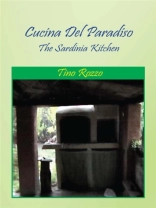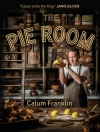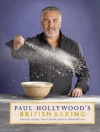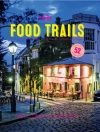Food and Drink: In this chapter I discuss the cultural attributes of Italy and Sardinia. Since cuisine contributes to a culture, along with its method and style. Nulvi, Sassari: The history, society, and culture of Nulvi Sassari is discussed. And the Candlieri. The parade of the candlestick, for the faithful, is not only ornamental; it is an ornament of religious rituals more closely focused on the country’s patroness, the Blessed Virgin Assumption. After the tour of the country, in fact they are placed inside the church with a clear order: the first farmers to enter into a church and settle the candlestick in the center. Artisans occupy a place on the right of the Madonna and the shepherds – who have the honor to open the fashion show – are to the left. They are the crown of the Virgin catafalque, sleeper, which is placed in the center. Each year, the Madonna is clothed and adorned by a small circle of women who have the privilege to perform this rite behind closed doors. Then begin the vespers and enter the Angel in the church with the apostles, men of the choir of Santa Croce in particular clothing, a sign of Spanish domination that intoning "Ave Maris Stella" accompanying simiulacre dell’Assunta that is placed on the bed. Nuragi: The largest island civilization was that of the ancient Nuraghi (Nuraghic Civilization), which evolved from the bronze age to iron age. This was from 1800 BC to the Roman conquest in 111 BC. For convenience of study, The Nuragic age is divided into three periods, each characterized by a particular type of Nuraghi and an important historical event. The Sardinian Kitchen: Sardinian cuisine is the representative of the territory in which Sardinians reside, to its origins. Like the land, the Sardinian cuisine is pure, simple, and flavorful. The morphological characteristics of the climate and encourage the development of a cuisine of flavors and ingredients. I decided to express the authenticity. Sardinia has succeeded over the centuries, to maintain their characteristics agro-nutrition. Sardinian food is organic and healthy. Their lifestyle may allow some people to live over 100 years of age. History of the Sardinian Kitchen: The pastoral tradition, strong in all regions, giving rise to a surprising variety of local products, born not only by the presence of raw materials linked to itself, but also by the need to live, for medium-long time without having the possibility of preparing complex foods. Sardinian cooking is very simple. Sardinian Cheeses: Sardinia has always been considered a symbol of pastoral civilization, and the goat and sheep rearing is the most important economic activity. Among the most valuable find pecorino sardo cheese DOC (Denominazione Di Origin Protetta=Denomination of Origin Protection) produced exclusively in Sardinia. Sweets: Deserts like Pabasinas, Panexxeddu, Flan, Bones of the Dead, (Osso di Mortu.)Seafood: Burrida, Crabs , Casola E Peschia, Scabbeciu. Poultry and Meat: Varied with Roasts, Barbecue, Porcheddu. Pasta: Malloreddus, Lorigtthas, Sardinian Lasagna, Pillas. Rice: Varied traditional rice recipes never covered in any cookbook.. Bread: Extenseive chapter on Breads, like Pan Carasau, Spianata, Mazzamurru. Eggs and Vegetables: Sardinian omelets and Vegetarian dishes. An Magic Happens: My personal Story of Sardinia , my visit, and some of its people.
Tino Rozzo
Cucina Del Paradiso [EPUB ebook]
The Sardinia Kitchen
Cucina Del Paradiso [EPUB ebook]
The Sardinia Kitchen
¡Compre este libro electrónico y obtenga 1 más GRATIS!
Idioma Inglés ● Formato EPUB ● Páginas 254 ● ISBN 9781441576743 ● Editorial Xlibris US ● Publicado 2009 ● Descargable 3 veces ● Divisa EUR ● ID 6566550 ● Protección de copia Adobe DRM
Requiere lector de ebook con capacidad DRM












